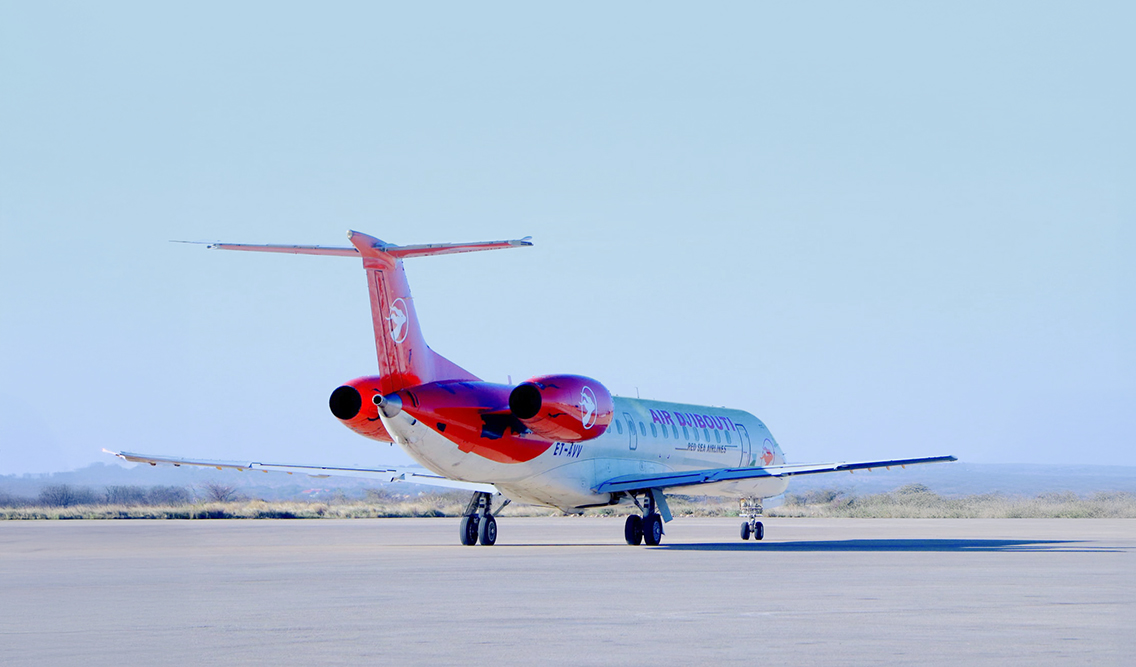Air Djibouti has had an eventful history. Founded in 1963, dissolved in 2002 and relaunched in 2015, the airline survived turbulent times before finding a new lease of life. The lessons have been well learnt. Abdourahman Ali Abdillahi, the airline’s CEO says: “We have reviewed our approach so as not to repeat the mistakes of the past. Today, the foundations are in place, we are not going to disappear from the radar again,” he pledges.
Air Djibouti currently operates two Embraer ERJ-145s and a Boeing 727 VIP, serving eight destinations, mainly in East Africa and the Middle East. Yemen, Somalia and Ethiopia are among its most important routes, with frequent rotations.
With a load factor of 70% and more than 41,500 passengers carried in 2024, Air Djibouti has since its relaunch demonstrated its ability to attract a loyal customer base despite being in a competitive market, Ali Abdillahi says.
One of Air Djibouti’s main strengths is its ability to serve areas that are difficult to access. Yemen, which has been in the grip of civil war for almost a decade, is a major route.
“We are one of the few carriers to operate in these conditions. Our aircraft operate two daily flights between Djibouti and Aden, with a high occupancy rate.”
This has, Ali Abdillahi says, enabled it to build up a loyal customer base, including businesspeople, humanitarian workers and transit passengers.
In addition, the company is relying on its local roots to set it apart. “Our crews speak Arabic, Somali, French and English, which offers our passengers additional comfort compared to the competition,” the CEO emphasises.
Air Djibouti is following a step-by-step strategy to grow. “We have to consolidate before investing,” says the CEO. The short-term objective of the airline is to stabilise its regional routes before opening up to new destinations. Dubai, Cairo and Nairobi are in the pipeline, with priority given to solidifying the regional network before any more distant expansion.
Djibouti aims to become a regional logistics hub, relying on its port network, land infrastructure, and air transport, which is still relatively underdeveloped. “The country wants to establish itself as a key link in the regional logistics chain, and in the long term, we will have our role to play,” says Ali Abdillahi.
The company is considering the acquisition of two Airbus A320s to support its expansion. A training programme has been launched to ensure a pool of qualified pilots and technicians. “We already have 15 trained pilots, including five women, a first for Djibouti,” Ali Abdillahi says with pride.
Tourism the next step
Although Air Djibouti’s focus is primarily on serving the region, it is aware of its potential role in the country’s tourism expansion. It is preparing to open routes to Tadjoura and Obock, where new hotels have been built. “Tadjoura can be reached by plane in seven minutes, compared to four hours by road,” says Ali Abdillahi.
To achieve this, Air Djibouti plans on hiring small propeller planes capable of landing on existing runways in these regions. The idea is to attract visitors interested in diving, beaches and whale shark watching, for example.
In a market dominated by behemoths such as Ethiopian Airlines and Qatar Airways, Air Djibouti hopes to find a niche for itself based on its knowledge of the terrain and strong local roots.
Want to continue reading? Subscribe today.
You've read all your free articles for this month! Subscribe now to enjoy full access to our content.
Digital Monthly
£8.00 / month
Receive full unlimited access to our articles, opinions, podcasts and more.
Digital Yearly
£70.00 / year
Our best value offer - save £26 and gain access to all of our digital content for an entire year!

 Sign in with Google
Sign in with Google 



